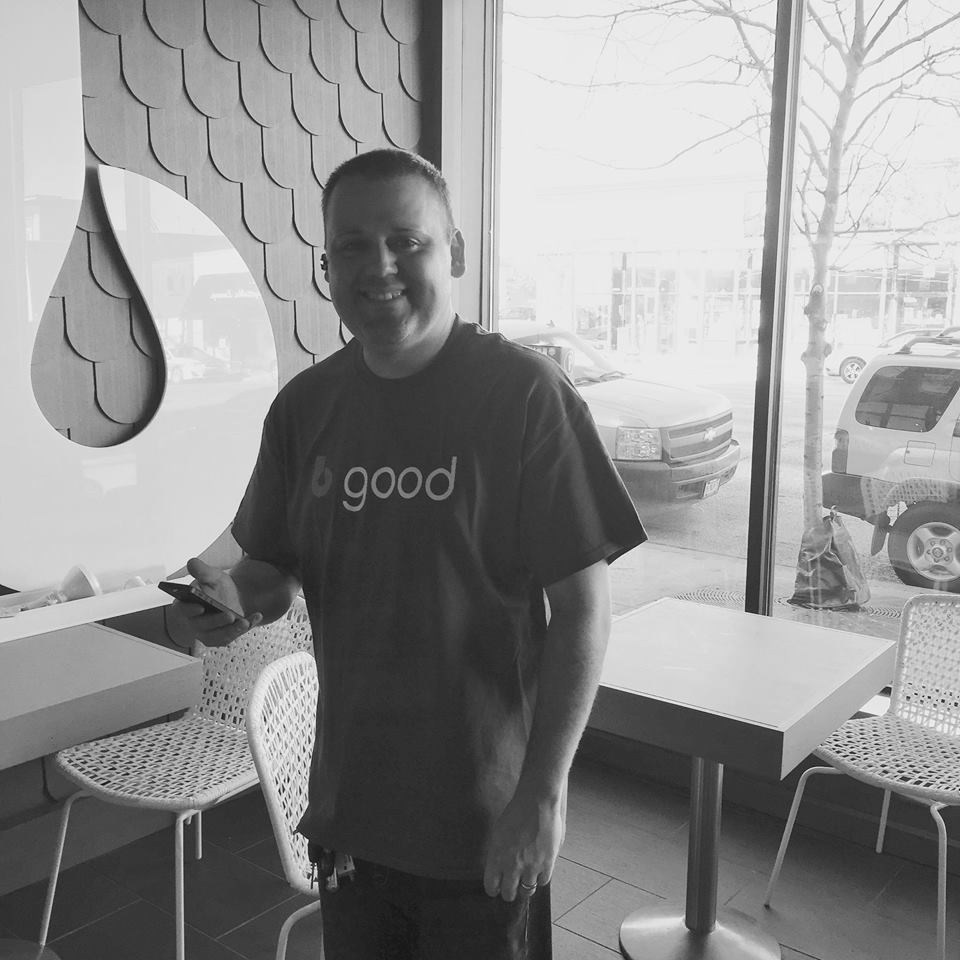A Space-Age Dreamer in the Body of a Chef: Some Thoughts on Homaro Cantu
I am a jaded journalist, used to “shocking!” news passing through my Tweetdeck; affairs, betrayal, death, birth and lawsuits, all from inside the world of restaurants. But the death of Homaro Cantu, the chef at moto and a frequent subject of stories of mine threw me for an absolute loop.
Why? Because Cantu was one of the most exuberant, alive people I’ve ever met, and now he’s gone far too soon.
Many chefs (heck, most chefs) are vague dreamers, filled with random plans of future concepts, dishes and plates that may never come to be. Cantu, on the other hand, was a futurist in the purest sense of the word, a man who actually believed that he could affect the future of the human race and predict and influence the way that people would relate to their food for decades to come. And ok, sometimes this means we didn't QUITE take him seriously, at least not 100%.
But more importantly, at least to me? He was a generous, caring man who was happy to talk to anyone who showed genuine curiosity about his work.
I was a baby blogger the first time I did a story on this strange, complicated man, who shot lasers into wine and dropped dough into liquid nitrogen. Years before that first nascent blog entry, I’d had my first foray into “molecular gastronomy” at moto. So, there was more than a little hero worship going into that first story. At that point in my career, not many chefs would have given me the time of day, as I barely had a byline and had nothing, really, to offer them.
For Omar, that didn’t matter. I had curiosity, and a willingness to listen, and that was enough. He’d talk for hours if his publicist would let him, about shooting food into space, about helping cancer patients, about how his food was unlike anything that had been done before.
That first story led to dozens of stories, from every angle. Omar was one of the first to create a computerized restaurant. Omar became enamored with a berry he was convinced would save the world. Omar created an entirely new cuisine that changed things forever. He was the subject of an exhibit in the Museum of Science and Industry, for god’s sake.
But seriously, though. We food writers weren’t so sure. In fact, sometimes, expressing enthusiasm for his gimmicky brand of food would evoke disdain and scoffing from the fooderati who knew better than to trust those fireworks.
And let’s be honest, even in our eulogizing of him. Some of his food wasn’t very good.
But some of his food changed our lives forever.
That’s why I always sent people to moto instead of to Alinea. “Look,” I would say in what was, after almost a decade, a well-practiced speech. “At Alinea, everything will be perfect. But at moto, you’ll get 10 courses. Of those, 4 will be straight-up inedible and you’ll want to spit them out. 3 will be pretty good. And 3 will completely, forever, utterly blow your mind.”
I remember dishes at moto I ate almost ten years ago, over many visits. I remember a visit to the basement where lasers were shot through powder into wine, I remember a melting tequila snowman, complete with nose and buttons, and I remember a perfect simalcrum of a Cuban cigar I ate right before my fiancé was leaving for six months in Cuba. He had never had a fine-dining multi-course meal before, and texted me when he heard Omar died, his memories right in the forefront.
I also remember a revolting mess of a meal at iNG I sat through when Omar was trying to become a YouTube star. I remember a strange, tasteless waffle thing that was supposed to taste better when on the miracle berry (it didn’t). I remember an ill-conceived dish that involved liquefied lettuce that tasted like it had rotted in a refrigerator.
But despite that, what I will remember is him talking to me about the future. About how he wanted to help people live without sugar because he hated how people were suffering from diabetes. About how his indoor, hydroponic farm might be a model for restaurants everywhere to create zero-mileage produce. About his new laser toy and how he could carve food into new and impossible shapes. About how the most important things he’d ever done were to help cancer patients with the miracle berry and to honor the legacy of his teacher, chef Charlie Trotter.
I’m sure there were tragedies in his life, and perhaps mistakes. I don’t mean to lionize the man – he was a chef, not a saint. The last time I interviewed him, he wasn’t particularly coherent. He seemed depressed and wandering, and I ended up interviewing someone else for the piece.
Homaro Cantu was not just a chef. He was a visionary. And like many visionaries, he wasn’t simple. He wasn’t good or bad. There was, to put it mildly, a lot going on within the man. But I will never forget him, and I was proud to know him.
One thing I can say for certain: he changed forever the way I look at what food can be. For a chef, I can’t imagine a better eulogy.
Godspeed, Chef. I hope you find happiness and love, and that right this second, you’re teaching God himself the joys of the laser and the anti-griddle.
